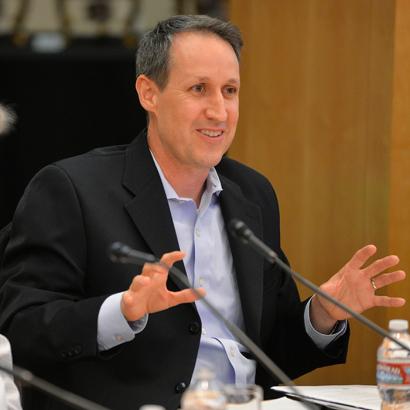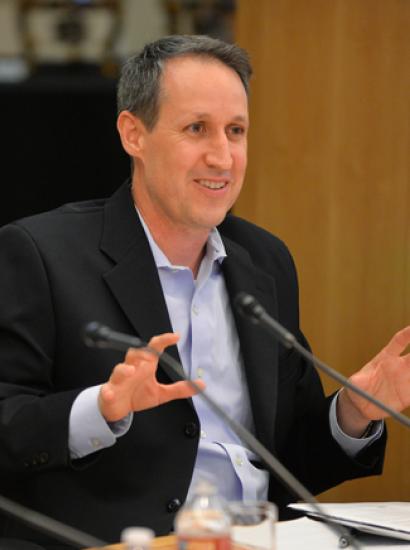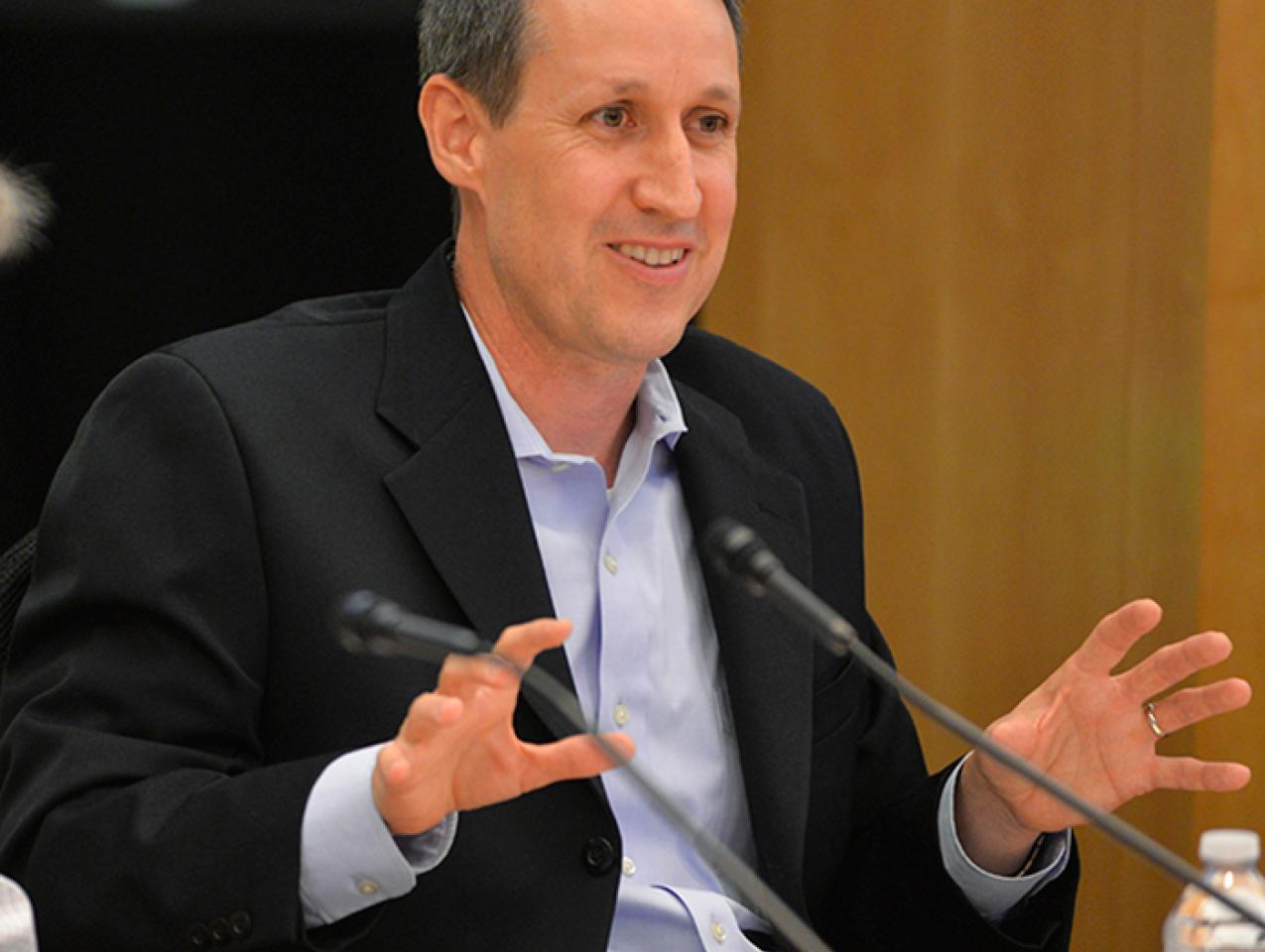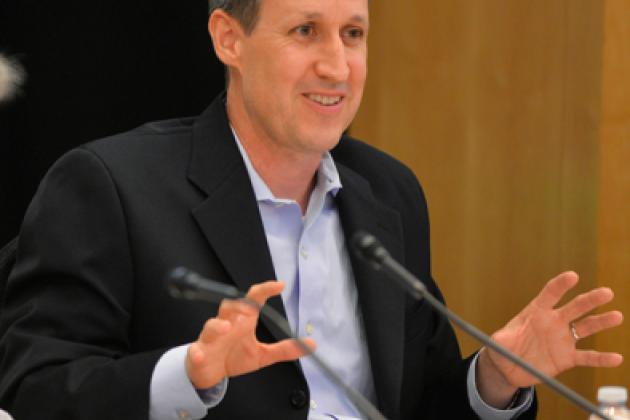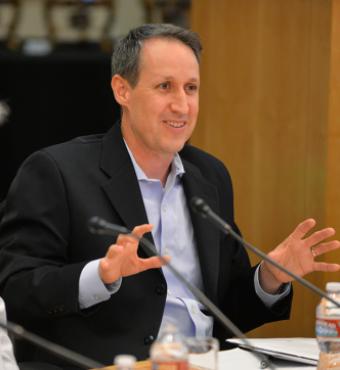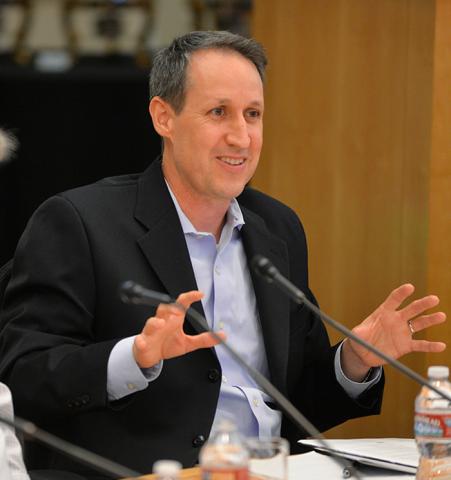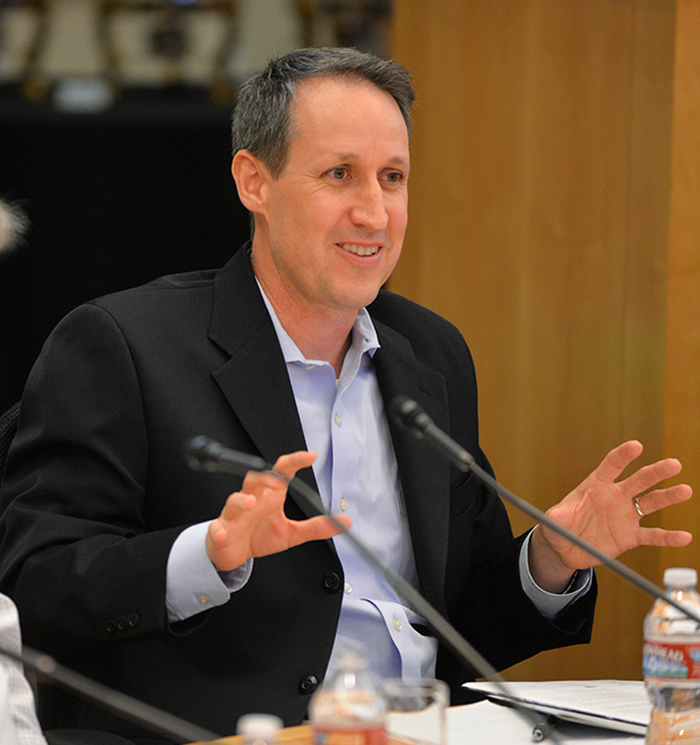
When the 2019 National Defense Authorization Act was signed into law on August 13, its highly anticipated personnel reforms came with a connection to the Hoover Institution—Tim Kane.
An economist, Kane is a former US Air Force intelligence officer and the JP Conte Fellow in Immigration Studies at the Hoover Institution. He has championed Pentagon personnel reform for nearly five years as a Hoover Research Fellow, hosting numerous events in Washington, DC and Stanford, and capped by the publication of his 2017 book Total Volunteer Force: Lessons from the US Military on Leadership Culture and Talent Management by Hoover Institution Press.
In January, Kane was invited to testify before the US Senate Armed Services Subcommittee on Personnel. “The Pentagon has a talent problem, and it cannot fix that problem until Congress changes the archaic law known as DOPMA [Defense Officer Personnel Management Act],” Kane told the assembled Senators before describing a bipartisan approach they could take.
Seven months later, the defense legislation that was signed by President Trump enacted the most widespread reform of DOPMA since 1980. The reforms and new policies go into effect on October 1.
In a recent interview with Stars and Stripes, Kane said, “The revolution has arrived. There is a theme and that theme is ‘up or out’ is out. Flexibility is in.”
Kane believes that the inclusion of reforms in this year’s National Defense Authorization Act (NDAA) is a “policy case study in success,” because it includes reforms and principles that “we at Hoover have been advocating for decades, dating back to work on the all-volunteer force pioneered by Martin Anderson and Milton Friedman and continued by (Hoover fellow) Admiral Gary Roughead.”
In Total Volunteer Force, Kane calls for breaking up the personnel bureaucracies that control all aspects of assignments and promotions, highlighting the importance of individual choice during all stages of a military career and restoring command authority to colonels and captains that have faded since the military’s centralization drive of the 1960s.
Kane’s plan also calls for strengthening performance evaluations with peer input, involving commanders in the assignment process, shifting compensation toward excellence and skill instead of seniority, and allowing flexible careers out and back into uniform. The goal, Kane emphasizes, is to extend the core values of volunteerism and professionalism, which will reduce costs and enhance military readiness.
Dramatic changes
One problem was that the prior policy “standardized” military promotions across all the armed forces, which hurt the US military when it tried to compete with a more agile private sector, especially in technology, according to Kane. The objective was not to make the Pentagon like a company, rather it is to restore the command authority that the Pentagon centralized in the 1960s.
Though the changes could still take years to be felt throughout the ranks, they are expected to be dramatic in some areas, he said. For example, each of the services could use “civilian experience” to determine rank for an entering officer. And, based on their qualifications, some officers could be promoted faster under the proposed reforms. Most importantly, officers will no longer feel pressured to follow a one-size-fits-all career path.
With the new reforms to federal law, the US military services have the option—not mandate—to design promotions best suited for their branch, Kane added. Significantly, that means the services are no longer bound by “up or out” promotion requirements, which required many solid servicemembers to be discharged if they didn’t get promoted according to the strict timelines set decades ago.
Several provisions in the new legislation are aimed at enabling the military to better recruit and retain individuals with highly specialized skills, he said. It also includes a number of reforms intended to facilitate more merit-based promotions among military officers and avoid concerns that specialization will hinder promotion opportunities.
Kane’s work on this issue was also credited in a recent War on the Rocks article by Brad Carson, a professor at the University of Virginia’s and former acting Undersecretary of Defense. Carson wrote: “(Colonel David) Lyle’s work, alongside that of economist Tim Kane, would turn out to be the intellectual inspiration for officers, many quite junior and centered around the Defense Entrepreneurs Forum, who were also dissatisfied with a personnel system that squandered the talents and commitment of far too many people.”
He added, “If anyone should be credited for the personnel reforms in the 2019 National Defense Authorization Act, it is really Lyle, Kane, and the members of the Defense Entrepreneurs Forum, all of whom argued for years and without much applause that things could be done better.”
MEDIA CONTACTS:
Clifton B. Parker, The Hoover Institution: 650-498-5204, cbparker@stanford.edu







